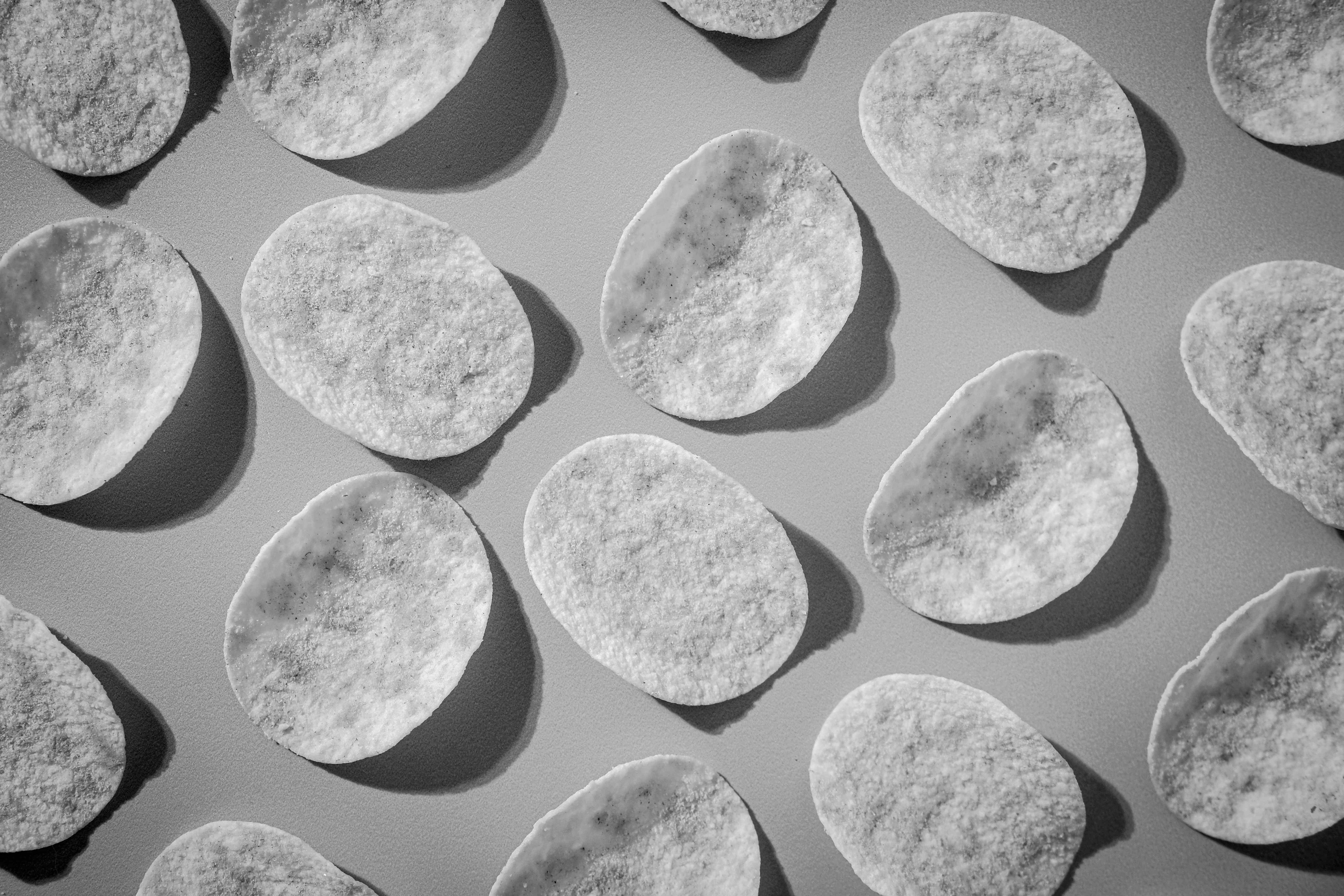
“Nominative determinism is not a characteristic of snack foods. Calling a snack food ‘Hula Hoops’ does not mean that one could twirl that product around one’s midriff. Nor is ‘Monster Munch’ generally reserved as a food for monsters.”
No truer words have been said.
Here, Walkers unsuccessfully appealed to the Tax Tribunal[1] that their SENSATIONS POPPADOMS potato crisps should be classed as a dipping snack to be served with an Indian meal rather than as a potato crisp. This was in a bid to save them millions of pounds a year in tax based on a legal technicality.
This might have been a case about tax, but it also raises some points from an IP perspective. We’ll look at some potential impacts on the decision in terms of trade mark registrations.
Creative approach to brand names
The above passages are truisms and deft, extreme examples to illustrate a point around consumers’ interpretations of brand names.
When assessing the inherent distinctiveness of trade marks for the relevant applied for goods/ services, potential trade mark registrations can be dismissed by lawyers and trade mark offices for being non-distinctive or descriptive. This can sometimes be arrived at in a knee-jerk manner without really examining what a mark’s meaning is or could be. A little more creative thinking and application of the English language per the opening passage would not go amiss generally.
Misleading brand name?
The Tribunal’s conclusion that the products are made from potato / potato starch and are similar to potato crisps gives rise to a direct question of trade mark law.
Whilst the nominative determinism described in the opening passage might not restrict a brand to what it calls its product, a trade mark cannot be registered if (amongst other grounds) it is likely to deceive the public as to the nature of the goods (see e.g., s3(3)(b) Trade Marks Act 1994). For example, the mark CAFFÈ NERO was refused by the EUIPO[2] because Italians would see the mark as meaning black coffee i.e., a coffee sold without cream, milk or sugar. CAFFÈ NERO would therefore be misleading for both coffee containing other ingredients (milk, syrups etc.) and items like tea and hot chocolate, which would not typically contain black coffee.
Where a potentially deceptive mark has somehow achieved registration, it can be similarly challenged via an invalidity action. There is an argument that Walkers registration for WALKERS SENSATIONS POPPADOM BITES (UK00903324076) (‘the 76 Mark’) is deceptive as the reference to poppadoms is a misnomer based on the product’s composition and the Tax Tribunal’s findings. This would mean that the trade mark could be removed from the register, losing the benefits of registered protection in the process.
Joined up legal approach
Finally, different legal teams within a business need to adopt joined up thinking. For example, Walkers, primarily a potato crisps business, have the Mark covering a variety of foodstuffs in classes 29 and 30.
Whilst Walkers’ tax lawyers wanted to argue that the product fitted into one category of foodstuffs (snack foods), there’s a danger that in doing so they open the trade mark up to non-use cancellation on other terms within the 76 Mark’s specification that they would want to keep, like “crisps”. Indeed, Walkers’ lawyers made several positive submissions that the products were not potato crisps based on marketing, manufacturing processes, ingredients and other factors. A trade mark lawyer faced with, say, a counterclaim of non-use on an infringement case may rightly be perturbed at the submissions made here.
Elsewhere within Walkers’ UK trade mark registrations sits WALKERS SENSATIONS (UK00902645943), their main house brand/sub-brand mark. Unlike the 76 Mark’s coverage, this registration does not cover “ready to eat snack foods” or “savoury snack foods”, only “potato chips; potato crisps”. As such, if Walkers’ tax argument had been successful and the product was classed as a poppadom / snack food and not a potato crisp, then they would be without trade mark coverage for core goods under their core mark.
Conclusion
Contradictory legal arguments in different proceedings and forums can be a common own-goal for lawyers - and best avoided.
The potential challenges the SENSATIONS brand could, in theory, face here based on deceptiveness or a lack of use could prove detrimental, for example, if wishing to challenge a third-party copycat product.
For now, it remains for Walkers to appeal this decision, and for the rest of us to come to terms with the fact that we live in “…a world which contains crisps with flavours as diverse as hedgehog, haggis, sweet chilli, sour cream, and 'cheese & port'.”
[1] Walkers Snack Foods Limited v The Commissioners for His Majesty's Revenue And Customs [2024] UKFTT 31 (TC)
Send us your thoughts:
Would you like to read more articles like this?
Building 1000
Cambridge Research Park
CB25 9PD
Fax. 01223 425258
info@iamstobbs.com
Privacy policy
German office legal notice
Cookie Declaration
Complaints Policy
Copyright © 2022 Stobbs IP
Registered Office: Building 1000, Cambridge Research Park, Cambridge, CB25 9PD.
VAT Number 155 4670 01.
Stobbs (IP) Limited and its directors and employees who are registered UK trade mark attorneys are regulated by IPReg www.ipreg.org.uk



